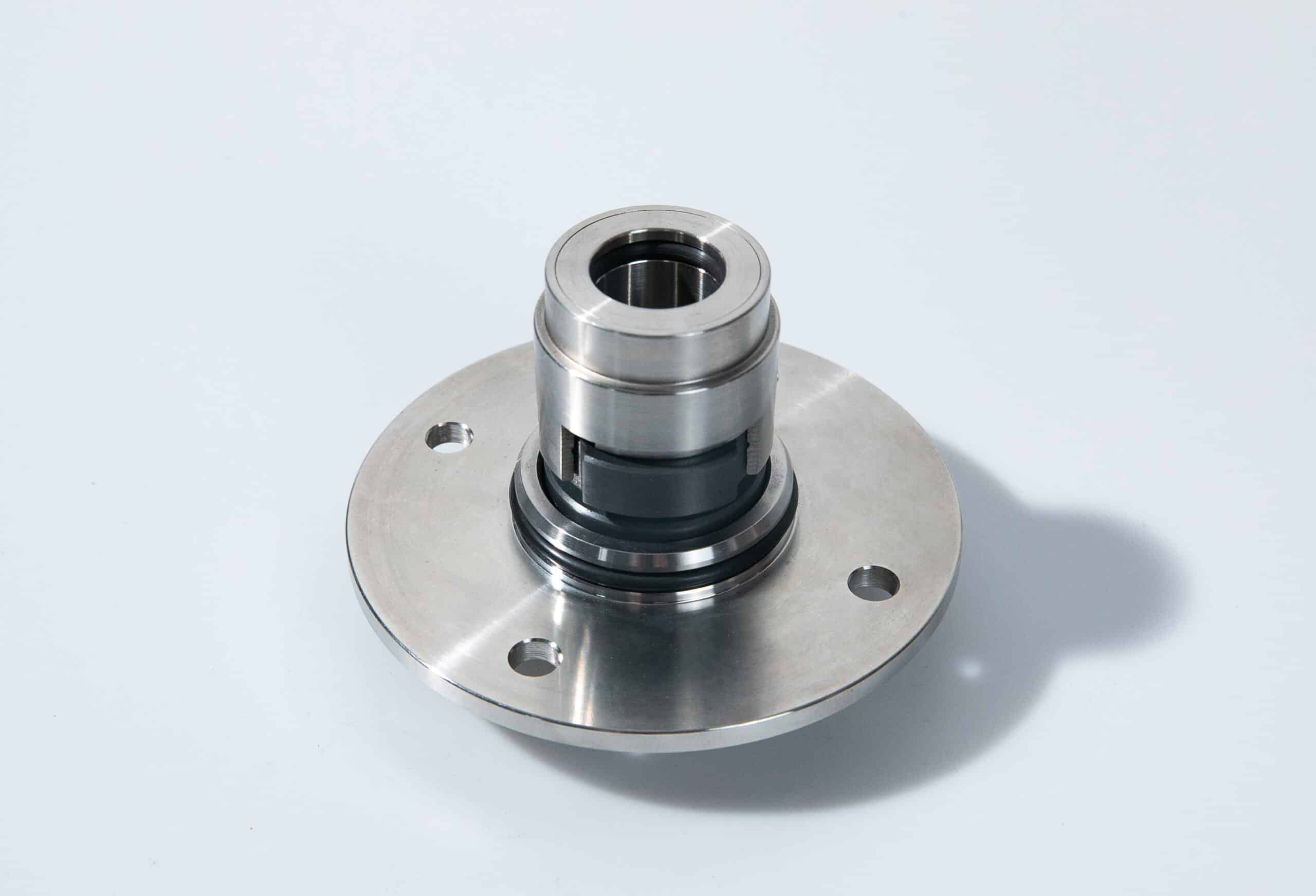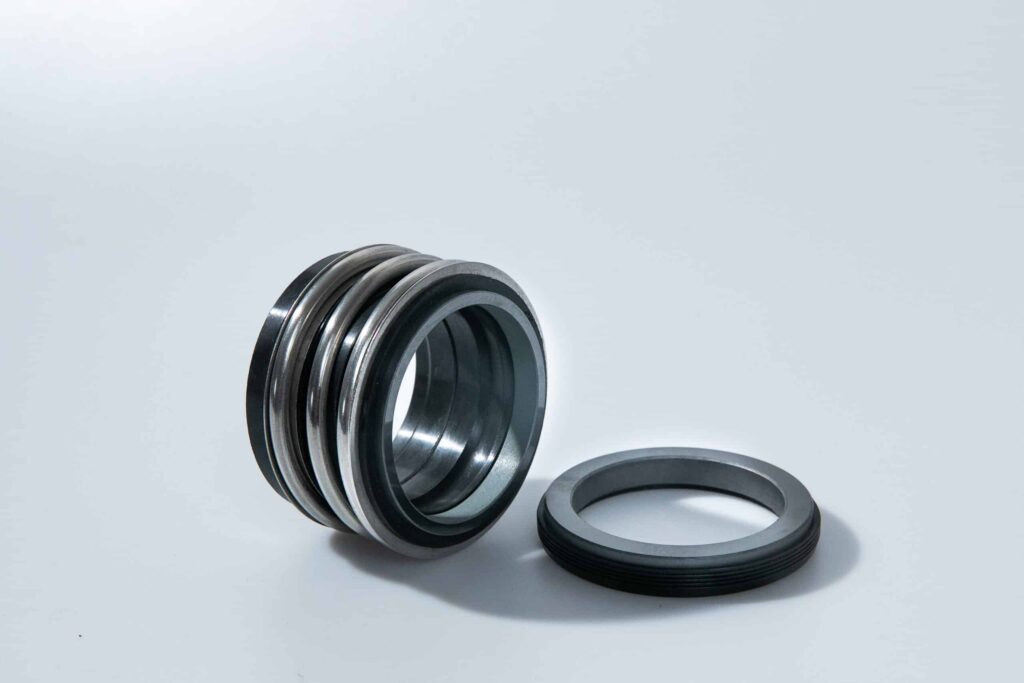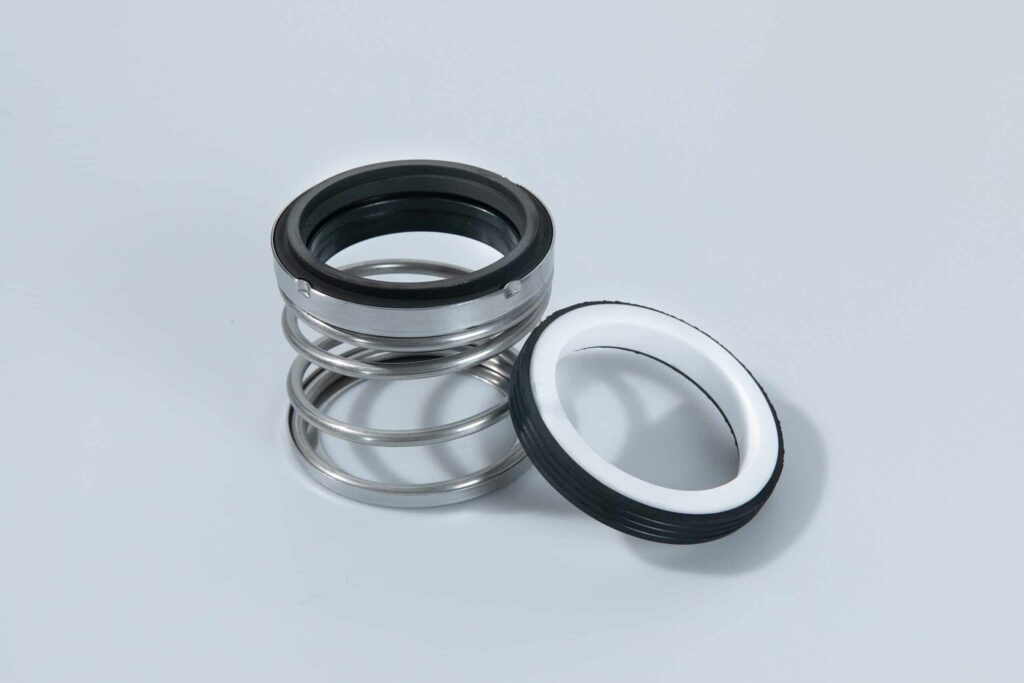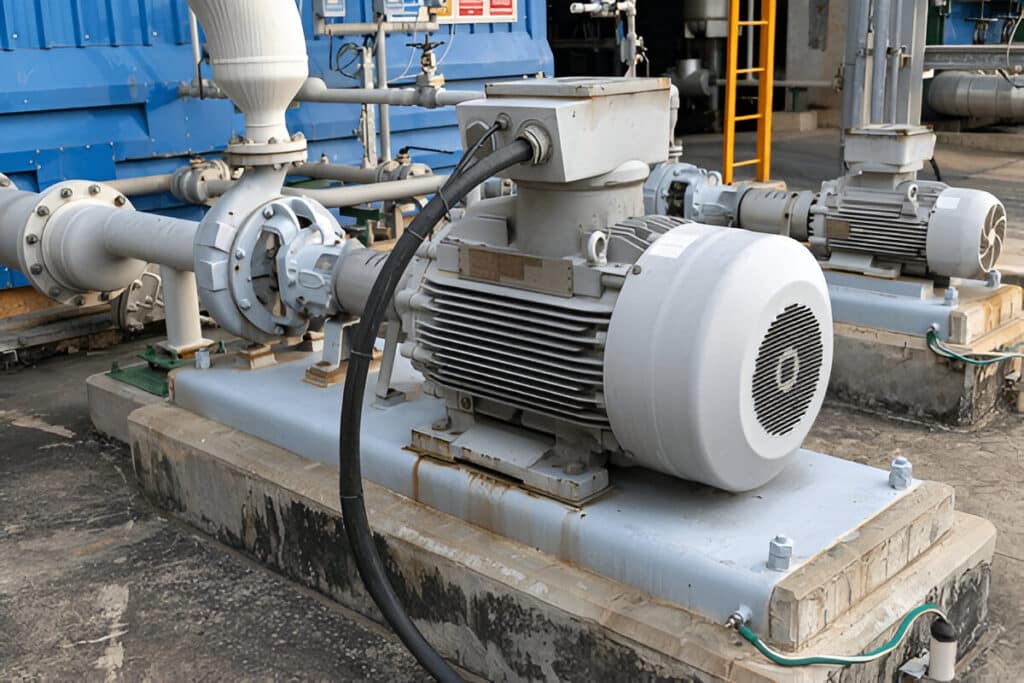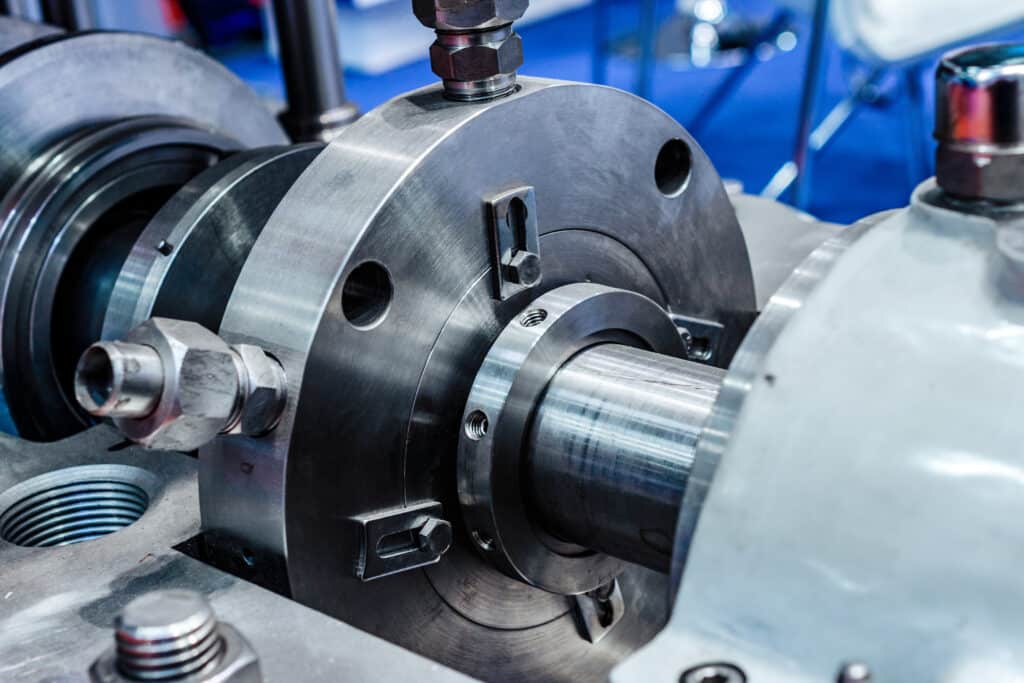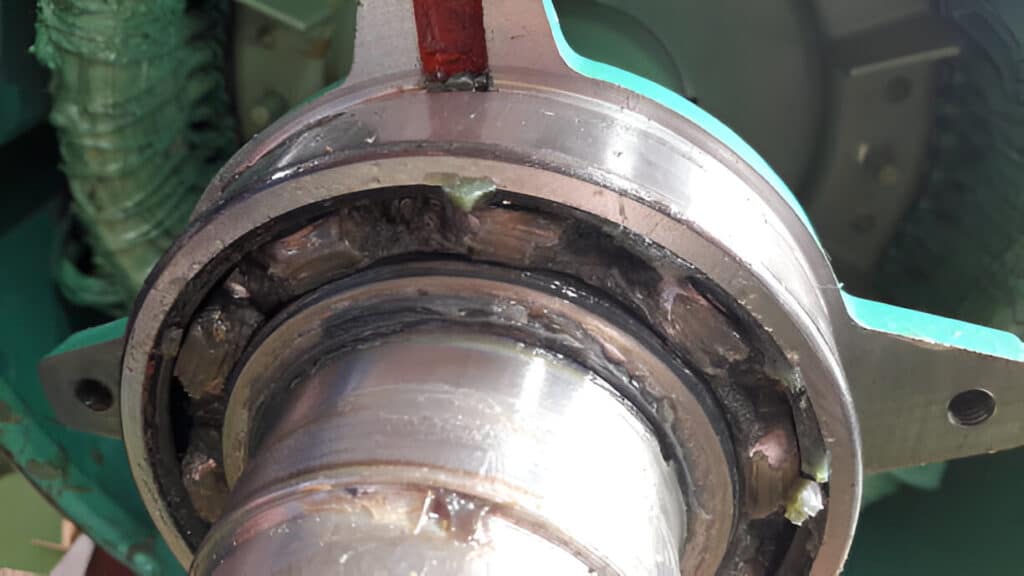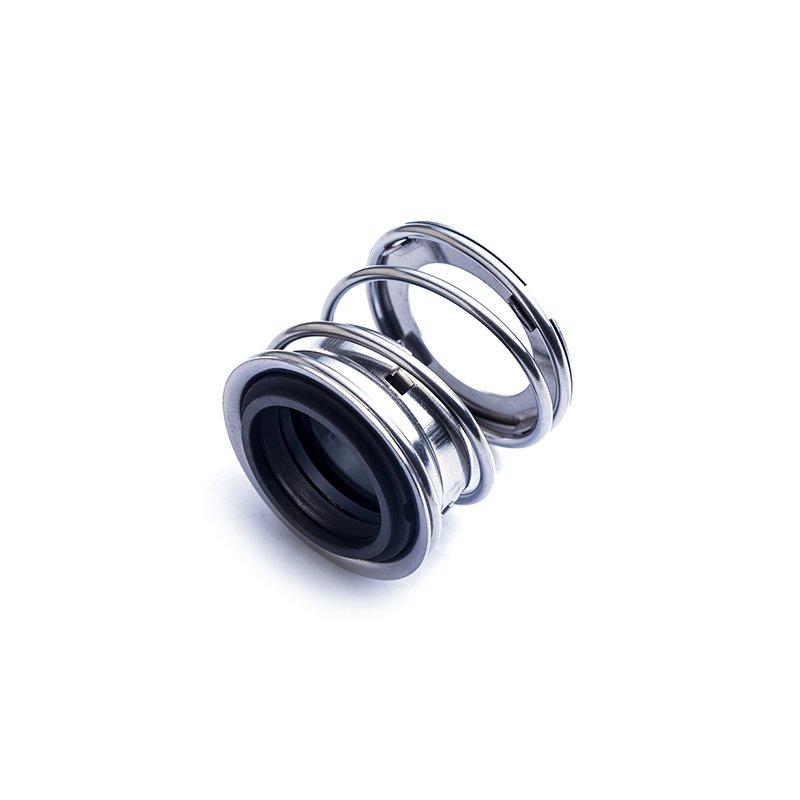
What Are Mechanical Seals
A mechanical seal is a dynamic sealing device used in rotary equipment such as pumps, compressors, and mixers to prevent leakage of fluids or gases from the housing. It consists of two precision-machined surfaces – a stationary face and a rotating face – that are pressed together by springs or bellows, creating a tight seal at the interface.
The sealing action is maintained by a thin film of fluid that lubricates and cools the faces, minimizing wear and friction. Mechanical seals are widely used in industries such as oil and gas, chemical processing, pharmaceuticals, and water treatment due to their reliability, durability, and ability to handle a wide range of process conditions.
Advantages of Mechanical Seals
- Excellent sealing performance: Mechanical seals provide a highly effective seal, minimizing leakage of fluids even under extreme temperatures and pressures.
- Wide range of applications: Mechanical seals can be used in various industries, including oil and gas, chemical processing, pharmaceuticals, and food and beverage.
- Customizable: Mechanical seals can be designed and manufactured using custom materials to suit specific application requirements.
- Long service life: With proper selection, installation, and maintenance, mechanical seals can operate reliably for extended periods, reducing downtime and maintenance costs.
- Environmentally friendly: Mechanical seals minimize leakage, reducing the risk of environmental contamination and improving workplace safety.
Disadvantages of Mechanical Seals
- Higher initial cost: Compared to other sealing solutions, such as lip seals or packing, mechanical seals have a higher upfront cost.
- Complex design: Mechanical seals consist of multiple components that require precise installation and alignment, which can be time-consuming and require specialized skills.
- Sensitivity to operating conditions: Mechanical seals are sensitive to changes in temperature, pressure, and fluid properties, which can affect their performance and lifespan.
- Limited tolerance for misalignment: Excessive shaft misalignment or vibration can cause premature wear or failure of mechanical seals.
When to Use Mechanical Seals
- High temperatures and pressures
- Aggressive or corrosive fluids
- Strict environmental regulations
- Critical equipment where reliability is paramount
- High-speed or high-pressure rotary applications
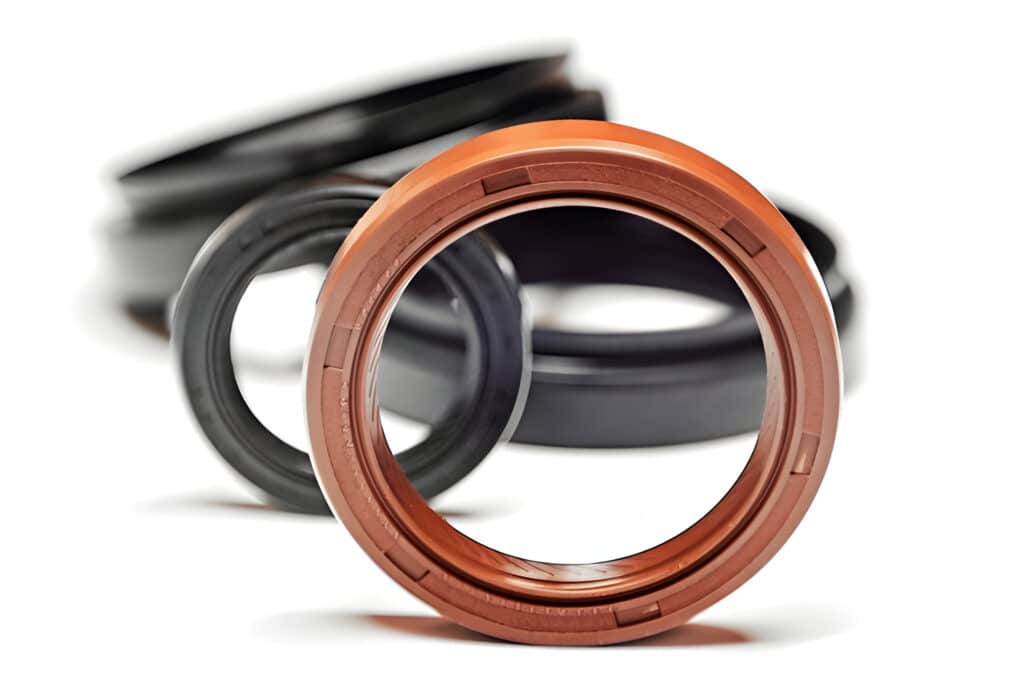
What Are Lip Seals
A lip seal, also known as a radial shaft seal, is a type of sealing device designed to prevent the leakage of fluids or gases along a rotating shaft. These seals are commonly used in various industrial applications, such as pumps, gearboxes, and hydraulic systems. Lip seals consist of a flexible sealing element, typically made from elastomeric materials like nitrile rubber or polyurethane, which is mounted in a metal case or housing.
The sealing element features a specially designed lip that maintains close contact with the rotating shaft, creating a dynamic seal. This lip is often reinforced with a garter spring to ensure consistent sealing pressure and compensate for wear over time. The lip seal’s design allows for efficient sealing while accommodating shaft misalignment and eccentricity.
Advantages of Lip Seals
- Cost-effective: Lip seals are generally less expensive than mechanical seals, making them a cost-effective solution for many applications.
- Simple design: Lip seals have a simple, compact design that is easy to install and replace, reducing maintenance time and costs.
- Versatility: Lip seals can be used in a wide range of applications, including automotive, industrial, and marine environments.
- Good sealing performance: When properly selected and installed, lip seals provide reliable sealing performance in low to medium pressure applications.
- Tolerance for misalignment: Lip seals can accommodate some degree of shaft misalignment or runout without significant performance degradation.
Disadvantages of Lip Seals
- Limited temperature and pressure range: Lip seals are not suitable for extreme temperature or pressure conditions due to the limitations of elastomeric materials.
- Wear and tear: The constant contact between the lip and the rotating shaft can result in wear over time, leading to increased leakage and the need for seal replacement.
- Sensitivity to contaminants: Dirt, dust, and other contaminants can damage the lip seal or cause premature wear, reducing its sealing effectiveness.
- Limited chemical compatibility: Elastomeric materials used in lip seals may not be compatible with certain chemicals, which can cause seal degradation or failure.
When to Use Lip Seals
- Low to medium pressures and temperatures
- Non-aggressive fluids, such as lubricants or hydraulic oils
- Relatively clean environments with minimal contaminants
- Cost-sensitive applications where a simple, economical sealing solution is required
FAQs
Is a lip seal a mechanical seal
A lip seal is a type of mechanical seal. It consists of a flexible lip that presses against a shaft or housing to prevent leakage.
